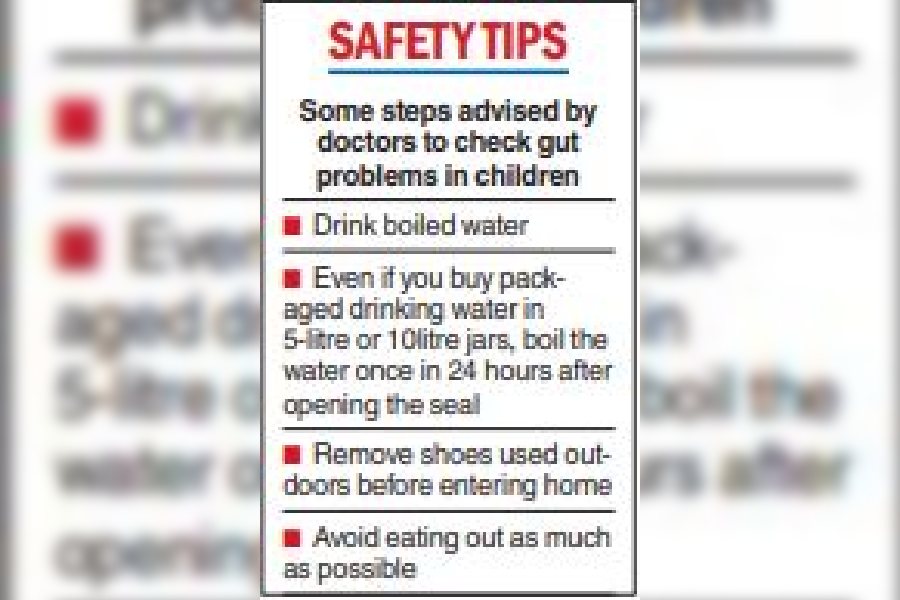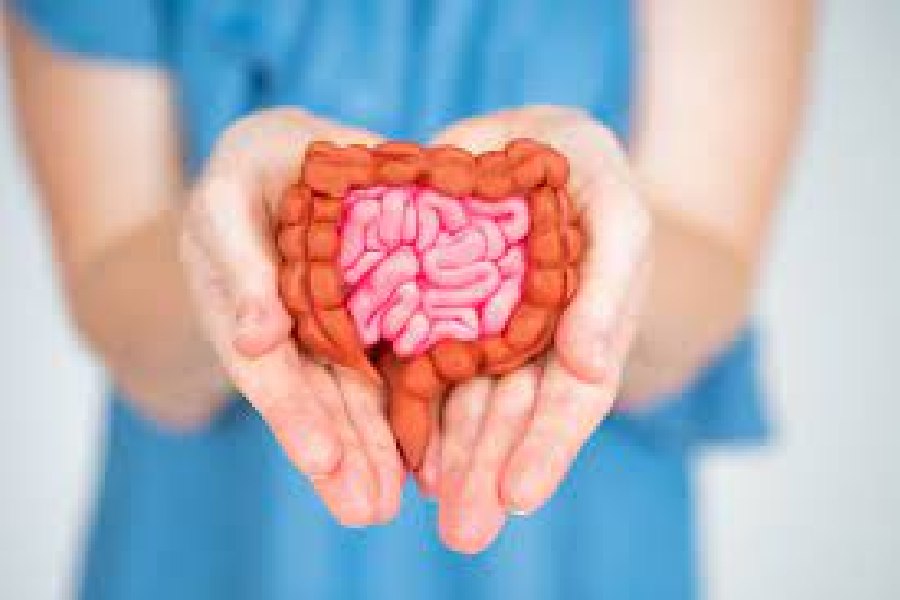Gut problems are on the rise among children across the city, said doctors.
The monsoon usually sees a spurt in such problems, they pointed out, advising caution for parents.
Avoiding junk food, boiling water before drinking and maintaining some basic hygiene can help in preventing a host of diseases like diarrhoea, dysentery and hyperacidity, said paediatricians.
“The incidence of diarrhoea among children is going up. With the arrival of the monsoon, the problem can worsen if elders are not on guard,” said Apurba Ghosh, paediatrician and the director of the Institute of Child Health.
Ghosh said simple steps like drinking boiled water and not wearing outdoor shoes into living rooms could make a lot of difference.
“Many people are unaware that so-called packaged drinking water remains sterile only up to 24 hours from opening the seal of the container. Many families buy jars of water and keep drinking it for days, believing it is safe. But the water should ideally be boiled after every 24 hours to prevent contamination,” he said.
Thousands of adults and children in India suffer from diarrhoea every day. The disease — caused by bacteria, viruses or parasites — is food- or water-borne and results from contamination. The infections usually peak during the monsoon.

Ghosh also pointed out that people returning home often forget to remove their shoes before entering the living rooms.
“In the monsoon, when drains overflow and the streets are often waterlogged, the shoes are contaminated with faeces and other pollutants. Wearing the same shoes into a living room is dangerous, especially if there are children around,” he said.
Swimming pools are another source of water-borne infections, said Ghosh. “Pools are leading to adenovirus infections as well,” he said.
Ritabrata Kundu, professor of paediatrics at the Institute of Child Health, said the commonly observed gut problems in children are constipation, hyperacidity and diarrhoea.
He attributed the rise in digestive tract problems in children to eating habits.
“Junk food and soft drinks have become inseparable from children. The meal and sleep timings have become irregular, especially during vacations. All these are damaging the guts of the children,” said Kundu.
“When we eat a vegetable curry with rice, we are eating complex sugar with starch. The digestion takes time and the sugar gets mixed with the blood gradually. On the other hand, if I drink a highly sweetened drink, the glucose instantly pushes up the blood sugar level. The moment it goes up, the satiety centre in the brain gets stimulated. When the satiety centre is stimulated, it causes a sensation of fullness and you no longer feel hungry. That is why sweetened drinks with high glucose content are classified as empty calories. They provide only calories, without any nutrition,” said Kundu.
Empty calories lead to several problems in the digestive tract, he said.
